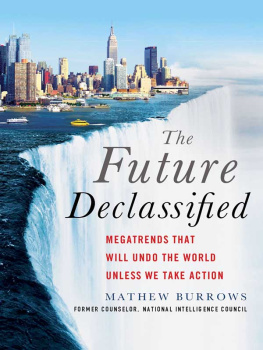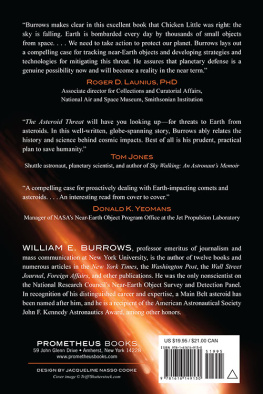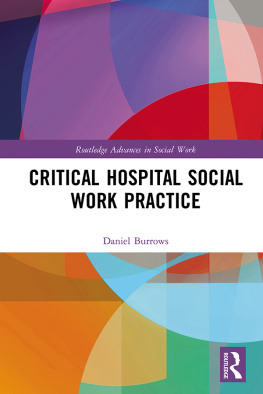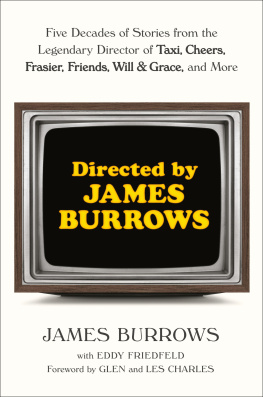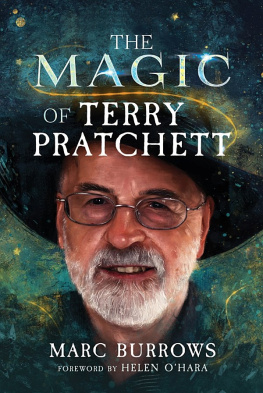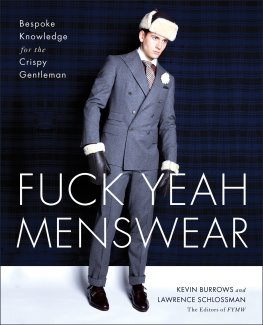Burrows - The Future, Declassified
Here you can read online Burrows - The Future, Declassified full text of the book (entire story) in english for free. Download pdf and epub, get meaning, cover and reviews about this ebook. year: 2014, publisher: Palgrave Macmillan, genre: Politics. Description of the work, (preface) as well as reviews are available. Best literature library LitArk.com created for fans of good reading and offers a wide selection of genres:
Romance novel
Science fiction
Adventure
Detective
Science
History
Home and family
Prose
Art
Politics
Computer
Non-fiction
Religion
Business
Children
Humor
Choose a favorite category and find really read worthwhile books. Enjoy immersion in the world of imagination, feel the emotions of the characters or learn something new for yourself, make an fascinating discovery.
The Future, Declassified: summary, description and annotation
We offer to read an annotation, description, summary or preface (depends on what the author of the book "The Future, Declassified" wrote himself). If you haven't found the necessary information about the book — write in the comments, we will try to find it.
Burrows: author's other books
Who wrote The Future, Declassified? Find out the surname, the name of the author of the book and a list of all author's works by series.
The Future, Declassified — read online for free the complete book (whole text) full work
Below is the text of the book, divided by pages. System saving the place of the last page read, allows you to conveniently read the book "The Future, Declassified" online for free, without having to search again every time where you left off. Put a bookmark, and you can go to the page where you finished reading at any time.
Font size:
Interval:
Bookmark:

MEGATRENDS THAT
WILL UNDO THE WORLD
UNLESS WE TAKE ACTION
MATHEW BURROWS

The author and publisher have provided this e-book to you for your personal use only. You may not make this e-book publicly available in any way. Copyright infringement is against the law. If you believe the copy of this e-book you are reading infringes on the authors copyright, please notify the publisher at: us.macmillanusa.com/piracy.
INTRODUCTION
Dont Kill the Messenger
WEVE HAD A BAD DECADE OR TWO IN THE UNITED STATES, IF NOT AROUND THE WORLD, FULL of nasty surprises and shocks. First 9/11, then the wars in Iraq and Afghanistan that did not work out the way we anticipated. In the 1990s we were told there could be no more financial crises, which was reassuring until the Great Recession happened in 2008. The impact of the financial crisis was worse in Europe, all the more as it was imported from America. The Arab Springthough welcomed at firstwas largely a surprise; no one anticipated that the Ben Ali or Mubarak regimes would fold so fast or that authoritarianism could come back so quickly in the case of Egypt. Equally, two big natural disastersHurricanes Katrina and Sandyshowed us just how vulnerable we are. And how much we have failed to heed the warnings about extreme weather. Finally, more recently, Russian aggression against Crimea seems to have come out of the blue, rattling our assumptions about Cold War divisions having been overcome.
You could look on this in a couple of ways. Its a bad patch that everybodycountries down to individualsgoes through from time to time. Our luck will return. It always has. America is bound to bounce back. Thats how most of us see it or would like to see it.
Another way is to see shocks and surprises as the new normal. There are multiple reasons: globalization, greater interconnectedness, new extreme weather patterns, and dynamic new technologies that are reaching tipping points. There is more than enough evidence from what we feel in our daily lives that change is ever increasing, making the future seem more unpredictable.
This book takes the second tack. Im a firm believer in America bouncing back, even if the United States and other countries are seeing the old status quo crumble away, but all of us will need more than luck to succeed and excel in this new, faster-paced world. I believe we are in a new era that we are only just beginning to understand. Unlike in the past, the United States doesnt have much margin for error. We do have to be smarter.
In truth the future doesnt have to be bad. But it could be if we dont watch out. Were at one of those junctures in which it could go different ways. But many of us dont seem to care, or maybe believe we cant do anything about it. In my view, thats not so. We have so many ways to ensure it does go in a direction that benefits us all.
This book grew out of ten years working at the US National Intelligence Council (NIC)a privilege and an honor in the truest sense. My job was an analysts dream, working the really big topics: Which way is the Middle East headed? Will we live in a nuclear-proliferated world? What are the key threats facing the United States? Are we winning the global war on terrorism?
Indeed, for the ten years I was on the NIC, I was actively engaged in thinking about and authoring many studies about the big challenges facing the United States and the world, but most of that work remains classified. One study the NIC produces every four years for each new US administration is not classified, however, and that one is about the longer-range future. That is the basis of this book. Of the five Global Trends editions so far produced by the NIC, I was the principal author of the last three.
The Global Trends works are increasingly influential within and outside government circles. I briefed Presidents George W. Bush and Barack Obama on them. They are used in strategic planning by the White House, State Department, Pentagon, and others. Within the intelligence community they are used to think about how to position intelligence operations for the future. Outside, they are widely used by other governments as well as in university courses everywhere. They have been translated into seven languages.
I am not a pessimist, but Im also not a starry-eyed optimist. I was raised with the notion that God helps those who help themselves, and I believe it applies to nations and civilizations, not just individuals. We can and should plan for our future.
I have grown more and more concerned that we Americans are not planning for the future. Part of that may be ignorance about the sheer magnitude of the developments unfolding. Never has humankind stood at the threshold of so much technological change, for example, where the ground is moving under our feet. As Ill address in this work, human nature is being transformed. The old limitationswhether in mental or physical capabilitiesare being lifted. For billions of people in the developing world, it is not a clich to say that a new and more prosperous era is dawning that was unimaginable even two or three decades ago.
As Americans, we should revel in those changes. The liberal world order we established after 1945 allowed other nations and societies to prosper and rise. Todays more multipolar world is part of the US dream, and we should glory in it.
Unfortunately, we seem to feel increasingly threatened by it. Multipolar was not a word in the official government lexicon until recently, and many in the Washington foreign policy establishment are still loath to acknowledge the less US-dominated order. The insertion of the word in the second edition of Global Trends I worked on was a hard-fought victory. Some of my colleagues opposed it. In the end, then NIC chairman Tom Fingar supported its inclusion. We should not have had to argue about what was reality. We should have been proud and not threatened by it.
The United States relative decline was another term I used that was highly controversial in the last two editions. Some US critics thought I was undercutting the United States by using it in an official government document. Ironically, senior Chinese officials puzzled over why it was used in an official document but concluded it showed that the United States was indeed so confident about itself that it could be open about its weaknesses. I dont think relative decline represents a weakness, just a fact that the rest of the world is getting richer. But I think the Chinese are right that we have nothing to be embarrassed about. And the fact that we can be frank about ourselves gives the document an enormous amount of credibility in others eyes.
Its a shame we spend so much time on the decline issue because the world ahead offers so many opportunities for the United States. Its still the case that much of the worldthough not allwants basic elements of our way of livingthe traditional middle-class lifestyle that obviously involves materialism like cars and houses but also the freedoms that Americans have and the ability to plan for their childrens future. So much of the rest of the world until relatively recently could not hope for a better future for their children. If it happened, it was either by fluke or by birthright. The growth of the middle classa big theme youll seeis tailor-made for America as it engages others in this more multipolar world. Part of the reason I wrote this book is to get that positive and uplifting story out.
Font size:
Interval:
Bookmark:
Similar books «The Future, Declassified»
Look at similar books to The Future, Declassified. We have selected literature similar in name and meaning in the hope of providing readers with more options to find new, interesting, not yet read works.
Discussion, reviews of the book The Future, Declassified and just readers' own opinions. Leave your comments, write what you think about the work, its meaning or the main characters. Specify what exactly you liked and what you didn't like, and why you think so.

